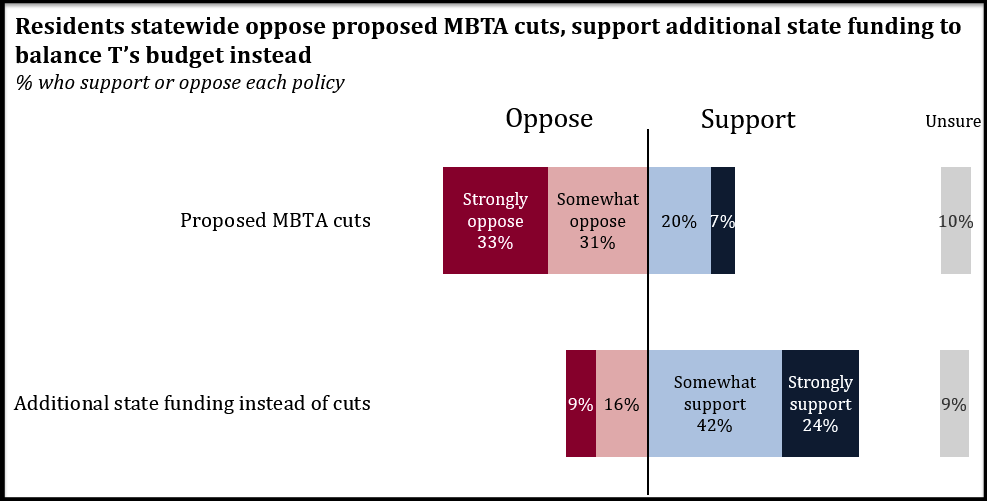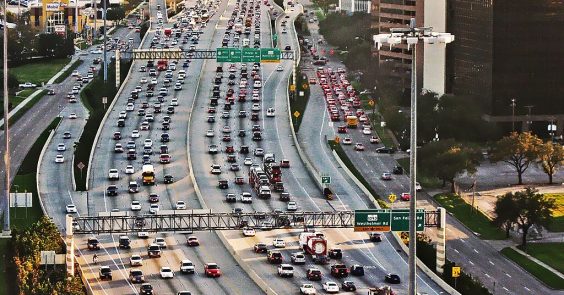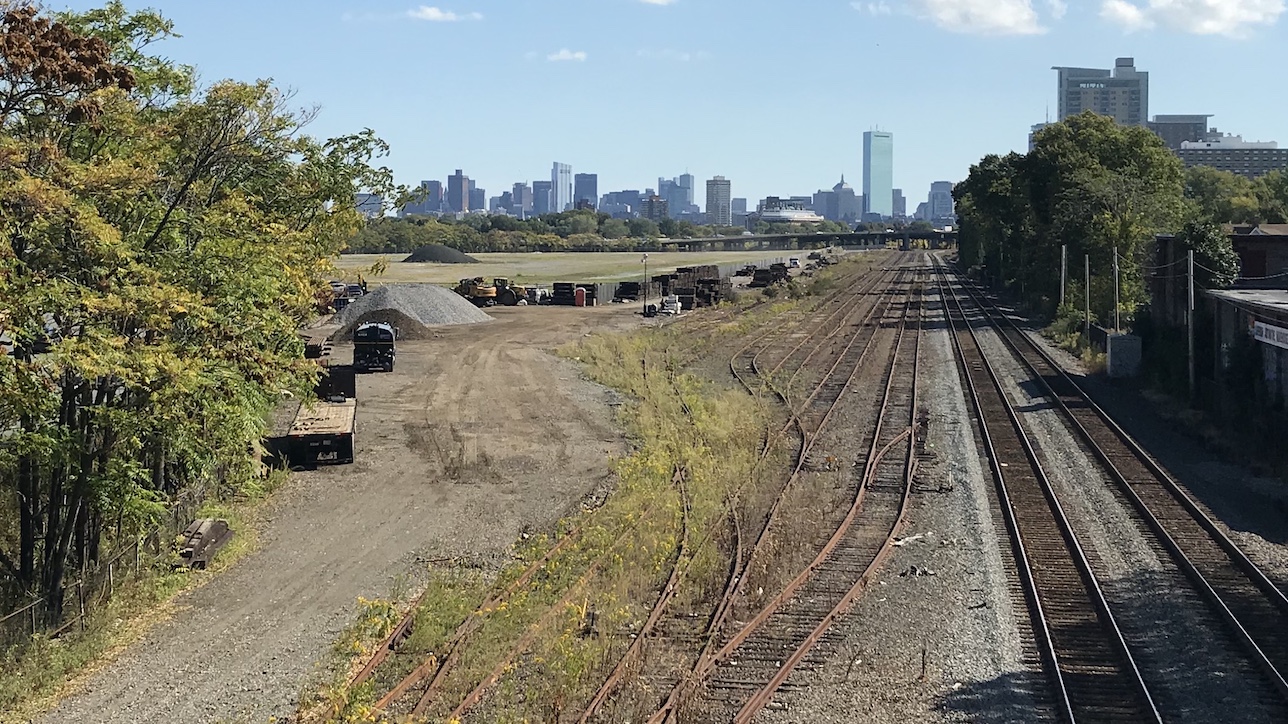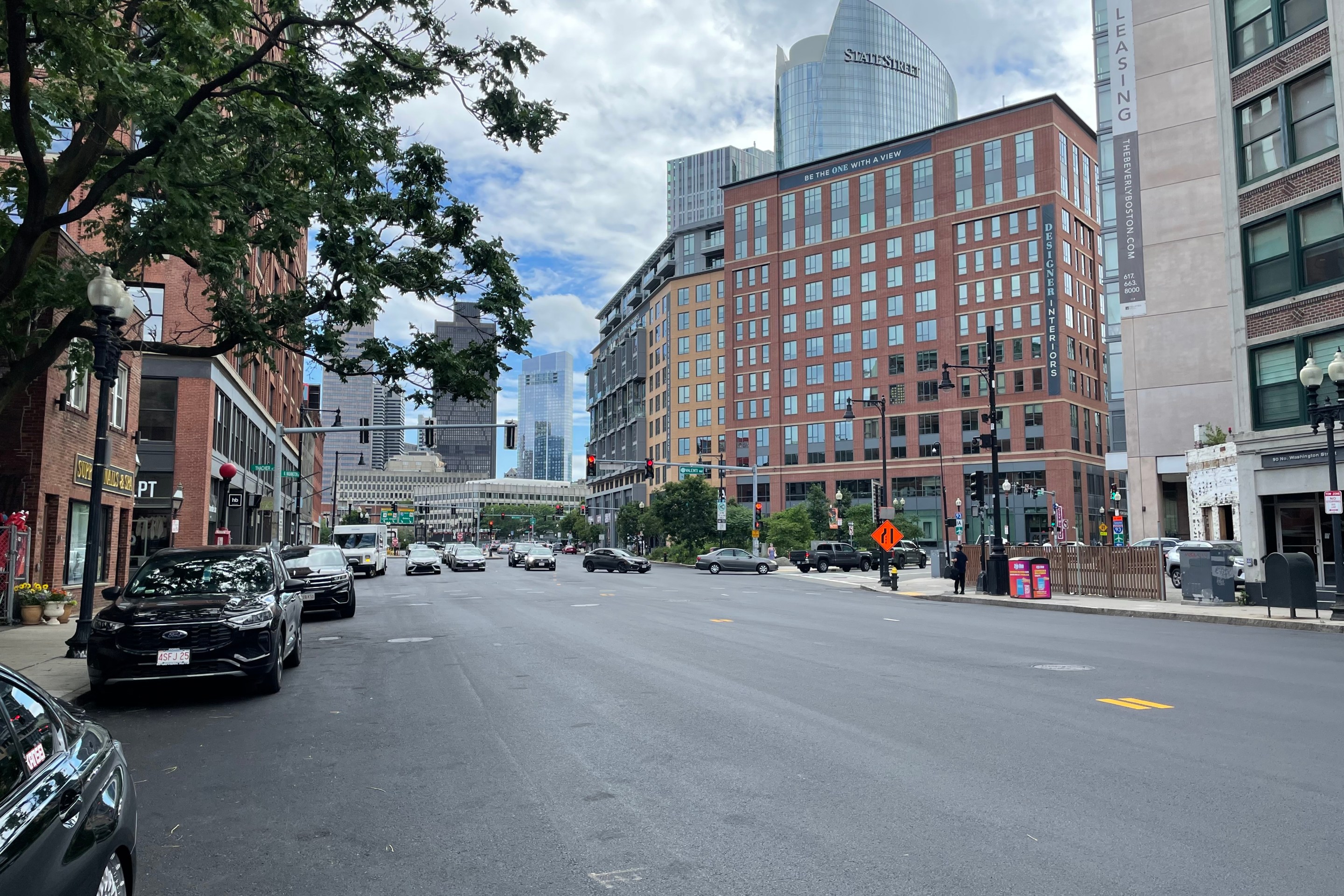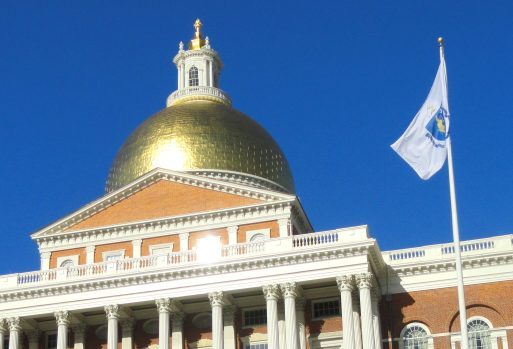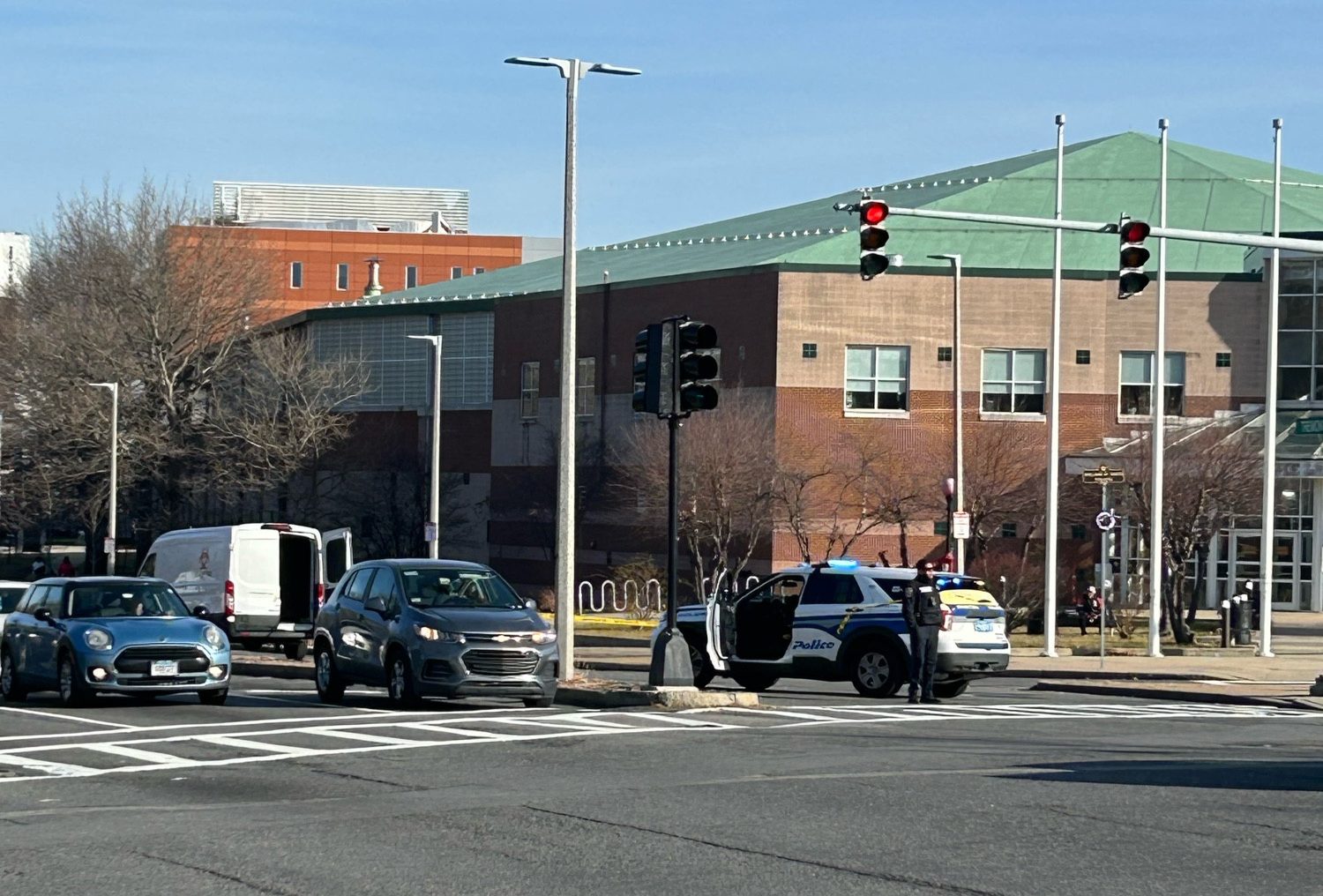
A new statewide poll finds strong opposition to the MBTA's proposed 2021 service cuts, and a desire for the Massachusetts Legislature to increase funding for transit instead of cutting service.
The MassINC Polling Group polled 1,340 Massachusetts residents between November 19-30, 2020, and found that 64 percent of respondents oppose the MBTA's "forging ahead" service cuts, which include the elimination of 25 bus routes, ferry service, and weekend commuter rail service (editor's note: this poll was sponsored by The Barr Foundation, a major financial supporter of StreetsblogMASS).
The poll found that a similar proportion of respondents (66 percent) wanted the Massachusetts Legislature to take action and increase state funding to help the agency fill its budget gap.
Public support for the T holds up even among residents who live well beyond its service area. Among the 158 poll respondents from western Massachusetts, 58 percent opposed the service cuts and 61 percent supported additional state funding.
While the T has framed the cuts as temporary measures that can be reversed once the agency's financial outlook improves, the poll found widespread skepticism of that promise: only 37 percent of respondents thought it was likely that service would be restored to pre-pandemic levels after new COVID-19 vaccines become widely available.
Pollsters also asked respondents about their travel habits and public transit use before and during the pandemic, and whether they expected to use transit after the pandemic ends.
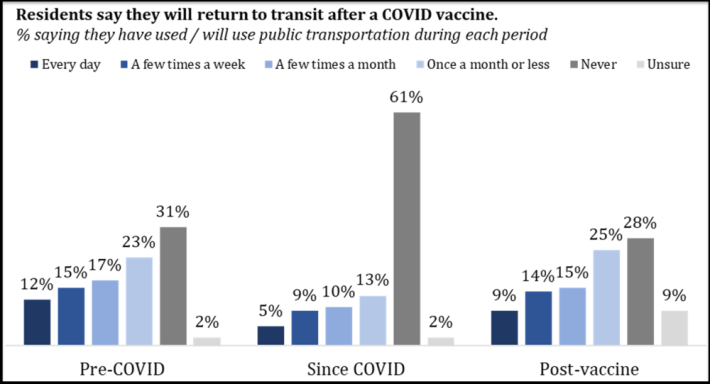
Consistent with the T's ridership statistics, the poll found that there's been a large increase in people who "never" use transit since the pandemic began. But the poll also suggests that respondents generally intend to return to their pre-pandemic travel habits once a vaccine is widely available.
